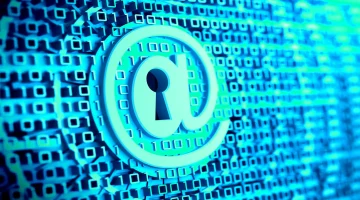
Ethical Banking and Credit Union Alternatives: Where Your Money Actually Matters
Let’s be honest. For most of us, banking is a necessary chore. We park our paychecks in a giant, faceless institution and hope for the best. We rarely stop to ask: what is this bank doing with my money while it’s sitting there?
Well, it might be funding fossil fuel projects you despise. Or investing in weapons manufacturing. Or engaging in predatory lending practices. It’s a unsettling thought, isn’t it? That your hard-earned cash could be working against your values.
That’s where ethical banking and credit union alternatives come in. This isn’t just about getting a slightly better savings rate. It’s about aligning your finances with your conscience. Let’s dive into what this means and how you can make the switch.
What Exactly is Ethical Banking, Anyway?
At its core, ethical banking is a philosophy. It’s the idea that financial institutions should have a positive impact on society and the environment, not just a positive balance sheet. Think of it as moving your money from a Wall Street blockbuster to a local, community-focused indie film.
These institutions are transparent about where they invest. They often prioritize things like:
- Community Development: Providing loans to local small businesses, affordable housing projects, and nonprofits.
- Environmental Sustainability: Financing renewable energy, green technologies, and refusing to fund coal or oil extraction.
- Social Justice: Promoting fair lending, financial literacy, and economic equality.
They’re not perfect, of course. “Ethical” can be a slippery term. But the intent—and the tangible action—is fundamentally different from the traditional banking model.
The People-First Power of Credit Unions
Here’s the deal with credit unions. They are, quite literally, yours. A credit union is a not-for-profit financial cooperative owned by its members. When you open an account, you’re not just a customer; you’re a part-owner.
That structure changes everything. Instead of maximizing profits for distant shareholders, the goal is to provide the best possible service and rates to the member-owners. It’s the difference between a private club and a public, profit-driven corporation.
The benefits are pretty compelling:
- Typically lower fees and better interest rates on loans and savings accounts.
- Decisions are made locally by people who understand your community.
- Each member gets one vote in board elections, regardless of how much money they have in their account.
Sure, their tech might sometimes lag behind the mega-banks, but many have caught up significantly. And honestly, is a slightly flashier app worth supporting practices you disagree with?
Beyond the Basics: Other Ethical Financial Alternatives
Credit unions are the most common alternative, but they’re not the only game in town. The landscape is growing, which is fantastic news.
B-Corp Certified Banks
These are for-profit banks that have voluntarily met incredibly high standards of social and environmental performance, transparency, and accountability. It’s like a rigorous, third-party audit for their ethics. They are legally required to consider the impact of their decisions on their workers, customers, suppliers, community, and the environment.
Online-Only Ethical Banks & Neobanks
The digital revolution has hit ethical finance, too. Several online-only platforms and neobanks have emerged with a strong ethical mandate. They often partner with community development banks or have built-in donation mechanisms to social causes. Their lower overhead can mean even better rates and nifty features like round-up savings for charity.
Local Community Development Financial Institutions (CDFIs)
These are specialized organizations dedicated to delivering responsible, affordable lending to low-income, minority, and rural communities. They are the unsung heroes of the financial world, often providing access to capital where traditional banks won’t tread.
Making the Switch: A Practical, Un-intimidating Guide
Okay, you’re convinced. But the idea of moving your entire financial life sounds… daunting. It doesn’t have to be. You can start small. Here’s a simple, step-by-step approach.
Step 1: Do Your Homework. Research local credit unions (they often have community-based membership requirements) and national ethical banks. Look for their mission statements, their CRA (Community Reinvestment Act) ratings, and whether they are B-Corp certified.
Step 2: Open a Single Account. You don’t need to close your old bank account on day one. Just open a new savings account with your chosen ethical institution. Get a feel for their online portal, their customer service. Dip a toe in.
Step 3: Redirect One Automatic Transaction. Maybe it’s your Netflix payment or a small monthly transfer to savings. Let this new account become a normal part of your financial ecosystem.
Step 4: The Full Migration. Once you’re comfortable, it’s time for the big move. This is the slightly tedious part, but you only have to do it once.
- Open your new primary checking account.
- Switch your direct deposit with your employer.
- Update your automatic bill payments (utilities, subscriptions, etc.).
- Finally, close your old account once everything has cleared.
It’s a few hours of admin for years of peace of mind.
Your Money is a Tool—What Will You Build With It?
Every dollar you deposit is a vote. It’s a tiny, quiet signal of what you believe in. In a traditional bank, that vote might go toward a new pipeline or a payday lender. In an ethical bank or credit union, that same dollar could help a teacher buy her first home, a solar panel company get off the ground, or a local coffee shop expand.
The choice isn’t just about personal finance. It’s about the kind of world you want to fund. It’s about realizing that your money is never truly idle; it’s always working for something. The real question is, what—or who—is it working for?





